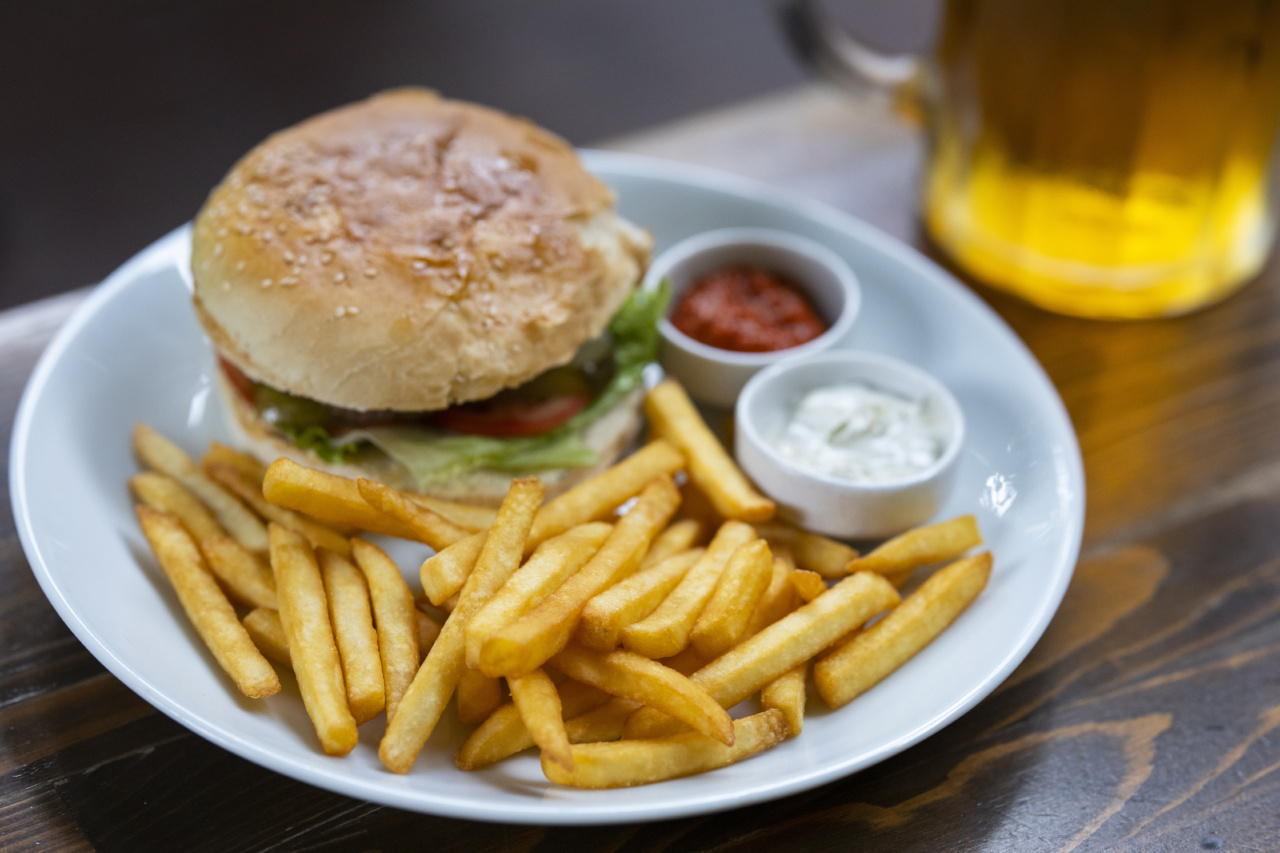Beer is one of the most popular alcoholic beverages consumed worldwide. It has been enjoyed for centuries, with a rich history and cultural significance.
While beer is often associated with socializing and relaxation, it is important to consider its nutritional value and potential impact on health. In this article, we will explore the nutritional content of beer and identify who should avoid its consumption.
The Nutritional Composition of Beer
Beer is primarily composed of water, hops, malted barley, and yeast. The brewing process involves fermentation, which converts sugars into alcohol and carbon dioxide.
The nutritional composition of beer can vary depending on the type and brewing method, but here are the general components:.
1. Calories
Beer is not a calorie-free beverage. It contains a significant amount of calories, derived mainly from the alcohol and carbohydrates present. On average, a 12-ounce (355 ml) serving of beer can contain anywhere from 90 to 200 calories.
2. Carbohydrates
Carbohydrates in beer come from the malted barley used during brewing. They provide energy and contribute to the beer’s flavor and body. A standard beer can have 10-20 grams of carbohydrates per serving.
3. Alcohol Content
The alcohol content in beer can range widely, depending on the style of beer. It is typically measured in terms of alcohol by volume (ABV), which indicates the percentage of alcohol in the beverage.
Generally, beer contains between 4-6% ABV, but stronger varieties can have ABV as high as 12-15%.
4. Protein and Amino Acids
Beer contains small amounts of protein and amino acids, although they are not significant enough to contribute to overall dietary intake significantly.
Who Should Avoid Beer Consumption?
While beer can be enjoyed in moderation by many individuals, there are certain groups who should avoid or limit its consumption:.
1. Individuals with Alcohol-related Disorders
Individuals with a history of alcohol addiction or alcohol-related disorders should abstain from consuming beer or any alcoholic beverages. Studies have shown that exposure to alcohol can trigger relapse and exacerbate the condition.
2. Pregnant and Breastfeeding Women
Beer should be strictly avoided during pregnancy and breastfeeding as it can have harmful effects on the fetus/infant. Alcohol easily crosses the placenta and can cause developmental abnormalities.
Furthermore, alcohol can also pass into breast milk and affect the nursing baby’s health.
3. Individuals with Liver Disease
Beer consumption should be avoided by individuals with liver disease, including cirrhosis, hepatitis, or fatty liver disease. Alcohol can worsen these conditions and lead to further liver damage.
4. Individuals with Certain Medications
Some medications, such as antibiotics, antihistamines, and antidepressants, may interact negatively with alcohol.
It is advisable to consult a healthcare professional or read the medication labels to understand potential interactions before consuming beer.
5. Individuals with certain Health Conditions
People with certain health conditions, such as pancreatitis, gout, or gluten intolerance, should exercise caution or avoid beer consumption altogether.
Beer’s high calorie and carbohydrate content can worsen these conditions or trigger adverse reactions.
6. Individuals with a Low Tolerance to Alcohol
Some individuals may have a low tolerance to alcohol, experiencing adverse effects even with small amounts. These individuals should approach beer consumption with caution and be aware of their limits.
Conclusion
Beer, like any alcoholic beverage, provides calories and can have potential health effects.
While moderate beer consumption may be enjoyed by many, certain individuals should exercise caution or avoid it altogether due to various health conditions or medication interactions. It is essential to understand one’s own health status and consult healthcare professionals when in doubt.































